Student protestors defy Columbia University's deadline to vacate campus or face suspension
Students defied Columbia University's orders to vacate their encampment protest by 2 p.m. Monday, despite warnings of suspension and after the school's president said it will not divest from Israel — a demand that has sparked protests on college campuses across the country.
The university told student demonstrators to vacate by 2 p.m. or else “be suspended pending further investigation” and barred from completing the spring semester.
At the encampment, now in its second week, participants voted nearly unanimously to stay put.
Around 2:45 p.m. — after the 2 p.m. warning time to leave — protesters were seen marching on the quad and chanting “Disclose! Divest! We will not slow, we will not rest!’"
A portion of the encampment has been cleared to make space for the upcoming commencement ceremony for graduates, and picketers are largely sticking to the perimeters of the encampment.
David Lederer, a 22-year-old sophomore at Columbia, walked up to the picket line and began waving a large Israeli flag.
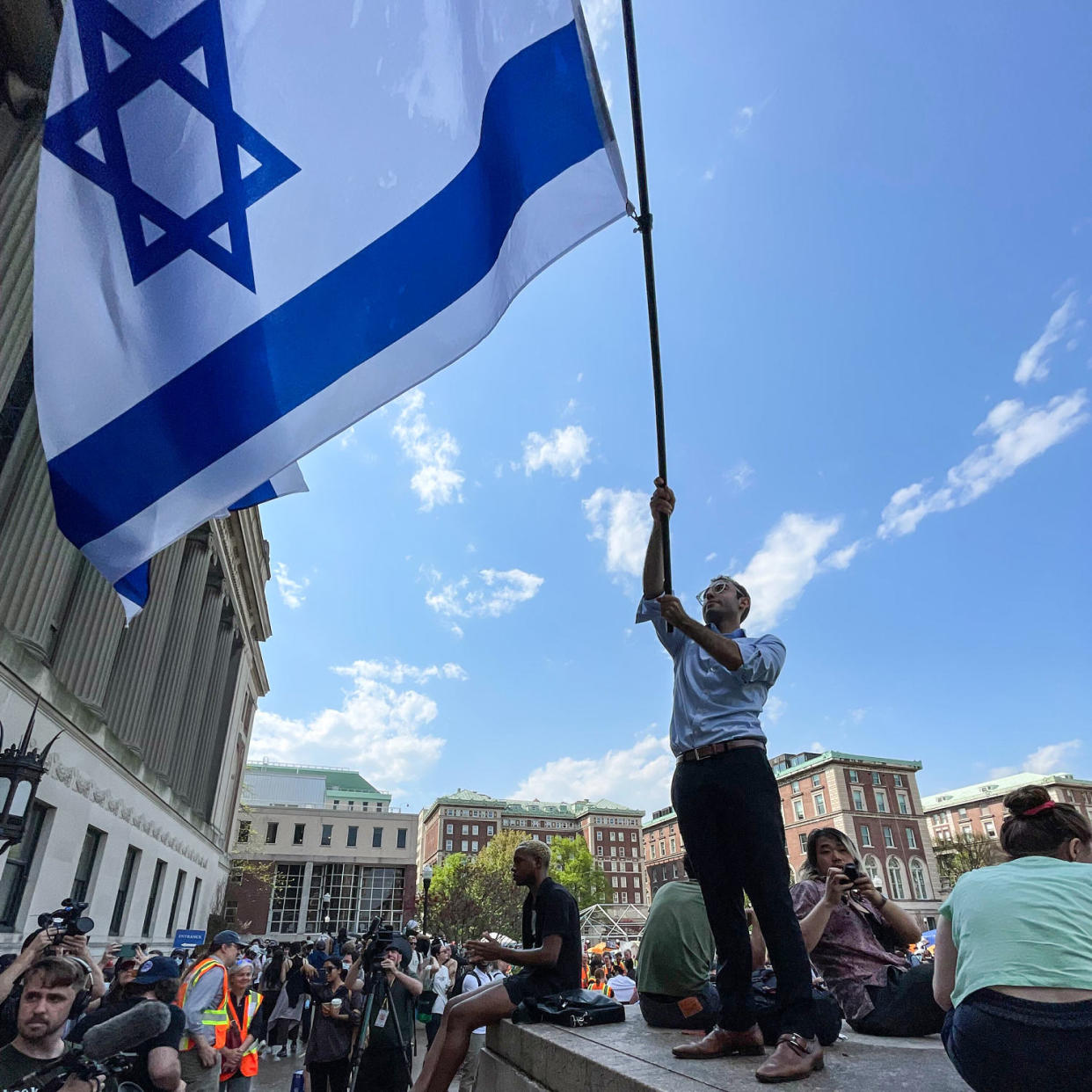
"I’m here to show we’re here to stay, we’re not going anywhere," Lederer said.
President Minouche Shafik in her statement asked the protesters to voluntarily disperse, saying the demonstration had created “an unwelcoming environment for many of our Jewish students and faculty,” that “external actors” have contributed to a “hostile environment” around university gates, and that it had become a “noisy distraction” for students.
Shafik also cited the May 15 commencement, saying, “We also do not want to deprive thousands of students and their families and friends of a graduation celebration.”
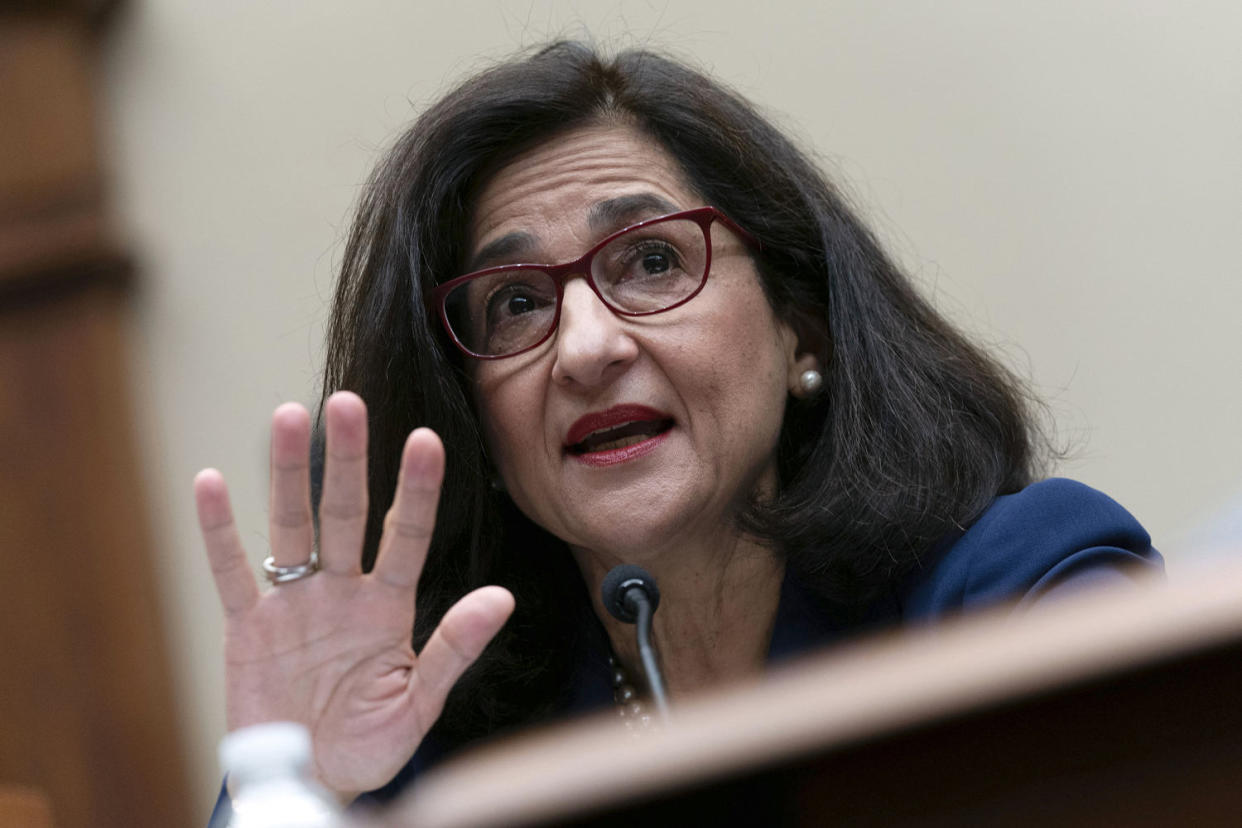
Columbia was the first elite institution struck by protests in support of the Palestinian cause, with students demanding that the school divest from investments that support weapons manufacturing and Israel amid the backdrop of the Israel-Hamas war, in which more than 34,000 people have been killed in the Gaza Strip.
Protests spread quickly last week on campuses from coast to coast, resulting in mass arrests and crackdowns.
“While the University will not divest from Israel,” it offered to create an expedited timeline for a review of new proposals from students by the school's Advisory Committee for Socially Responsible Investing, which explores divestment, Shafik said.
“The University also offered to publish a process for students to access a list of Columbia’s direct investment holdings, and to increase the frequency of updates to that list of holdings,” she added.
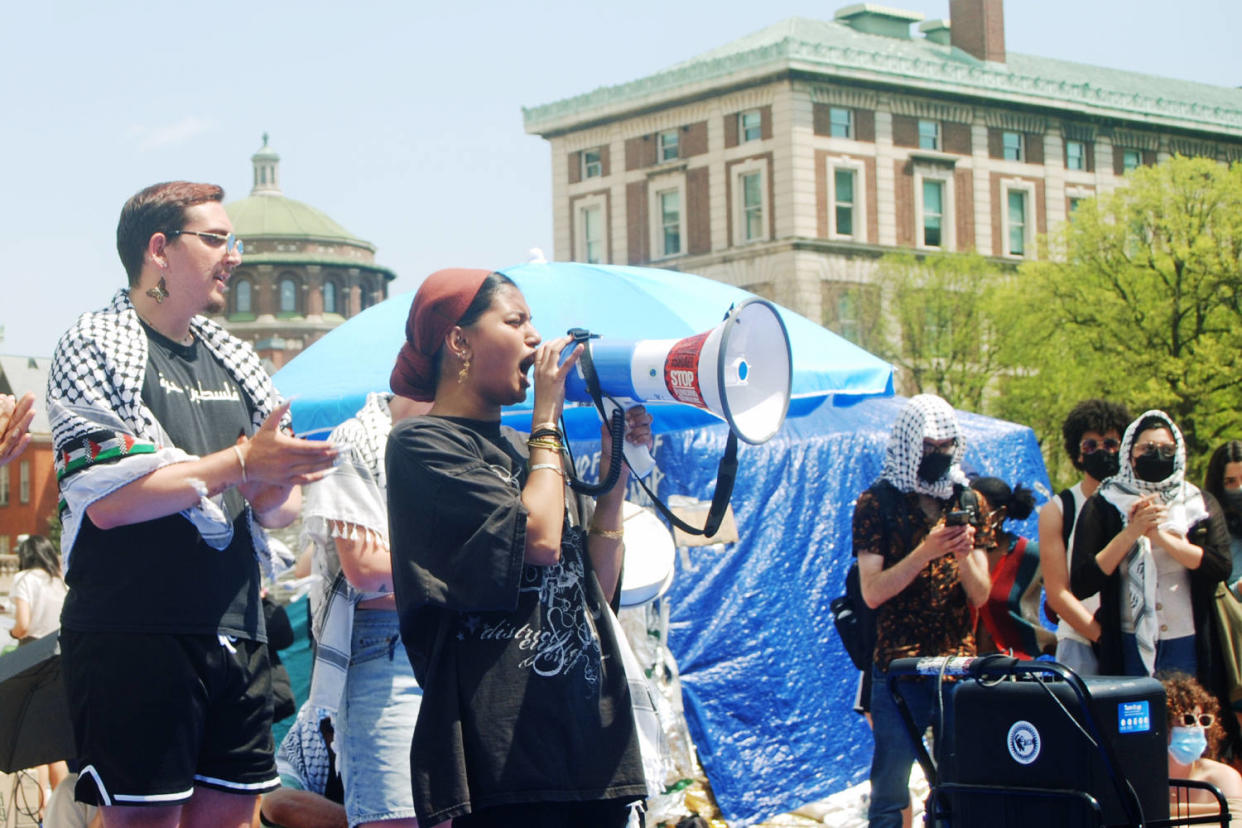
Though the talks at Columbia were at a stalemate, there did appear to be some small movements in negotiation.
Shafik said the university had offered “to make investments in health and education in Gaza, including supporting early childhood development and support for displaced scholars."
“We urge those in the encampment to voluntarily disperse. We are consulting with a broader group in our community to explore alternative internal options to end this crisis as soon as possible. We will continue to update the community with new developments,” she said.
The notices, viewed by NBC News and issued to protest participants Monday morning, asked protesters to identify themselves to a university official and sign a form agreeing to an alternative resolution for the university policy violations that the encampment posed.
Those who sign are eligible to complete the semester in good standing and will not be placed on suspension, if they adhere to obeying university policies.
Those who don't vacate by 2 p.m. would be suspended.
“We regret that we need to take these actions, but we must restore order to the campus that all students can complete their work for the term, study for exams, and feel welcome in the community,” the notice said.
If the encampment isn’t removed, the notice said: “We will need to initiate disciplinary procedures because of a number of violations of university policies. These are policies you agreed to adhere to when you joined our community.”
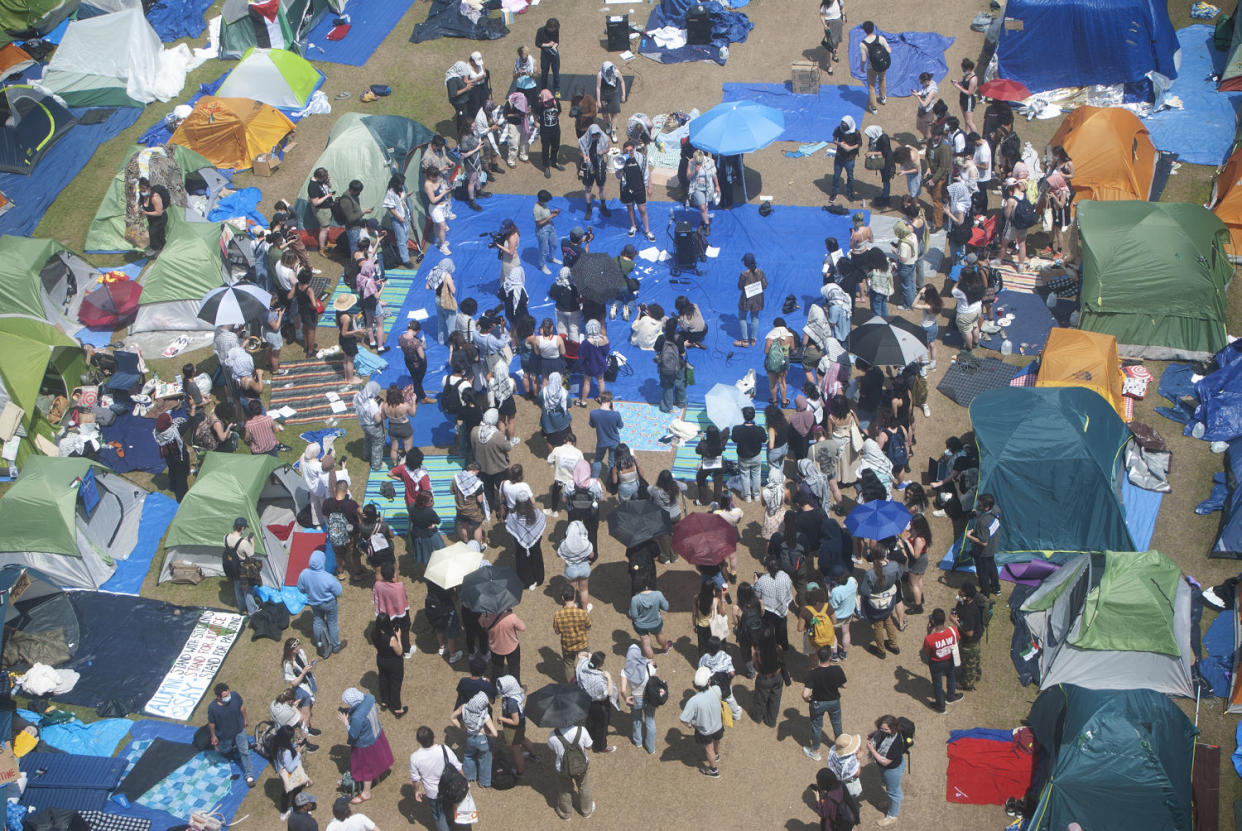
It noted that the university would offer “an alternative venue for demonstrations after the exam period and commencement have concluded.”
The alternative resolution said signees agree to disciplinary probation, to comply with university policies and agree to participate in university disciplinary processes.
Columbia University Apartheid Divest (CUAD), the coalition organizing the encampment protest, said in a statement Monday: "These repulsive scare tactics mean nothing compared to the deaths of over 34,000 Palestinians. We will not move until Columbia meets our demands or we are moved by force."
The group criticized the university's "threat to mass suspend, evict and possibly expel students" with just hours notice as a violation of the school's rules.
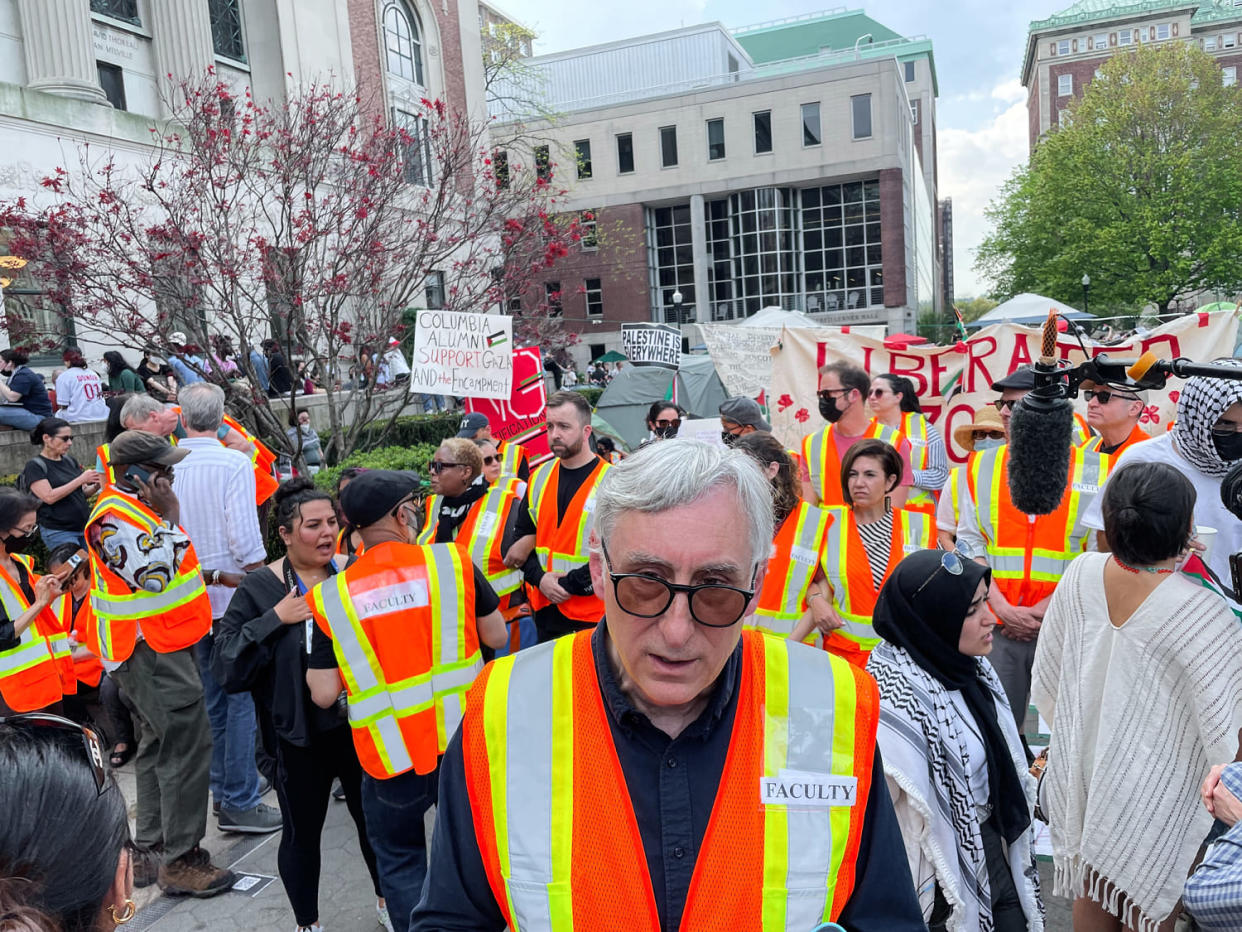
The group also condemned the university's paper notices issued at the encampment as "reminiscent of the flyers the Israeli army launched from the sky to Gazans."
At a rally by the coalition at around 2 p.m., student organizer Sueda Polat said: “The university has conducted itself with obstinacy and arrogance, refusing to be flexible on some of our most basic points.”
“We were engaging in good faith negotiations until the administration cut them off under threat of suspensions. Where we asked for amnesty, they gave us more discipline,” Polat said.
Protest organizers also criticized Shafik's claim that the university had “constructive dialogue” with protesters, noting Columbia refused to give a commitment that student divestment proposals would be binding, and described Shafik's offering of childhood education programs for Palestinians as "nothing more than bribery of the student movement."
